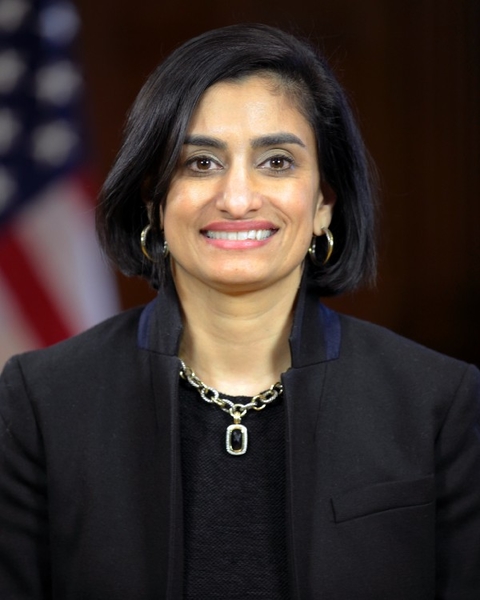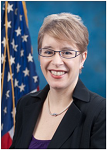WASHINGTON—CMS Administrator Seema Verma has launched a national "listening tour" to gather feedback from healthcare industry stakeholders on regulatory reform, and on Thursday she hosted a forum with the representatives of some of the nation's largest provider groups.

About 30 people representing physician, hospital, nursing, specialty care and home healthcare groups attended the meeting at the Department of Health and Human Service's building. Verma said that it's key for her and the Centers for Medicare & Medicaid Services to "hear from the frontlines" as the agency embarks on a regulatory overhaul.
She compared regulatory reform to painting a house: You apply new paint after stripping away the old. But, she said, CMS has been painting new regulations over old ones without stripping them away.
"We are very serious about going through this," Verma said.
RELATED: CMS' Seema Verma embarks on national 'listening tour' to hear from doctors, healthcare leaders
American Hospital Association President Rick Pollack praised steps CMS has already taken on programs including Meaningful Use, but said several areas remain a priority for the AHA, including aligned quality measures and expanding Medicare coverage for telehealth.
The AHA released a report this week that shows the trade-offs when providers are "pushing paper" instead of spending time on patient care, Pollack noted.
Administrative tasks related to compliance cost hospitals, health systems and post-acute facilities cost $39 billion a year, according to the AHA study. An average-sized hospital spends $7.6 million a year on federal regulation compliance, which equals about $1,200 for each admission.
Hospitals also on average dedicate the equivalent of 59 full-time employees to compliance. More than a quarter of those are health professionals who could otherwise be treating patients, according to AHA.
Thank you Seema Verma for meeting with AAMC and others. CMS committed to #patientsoverpaper pic.twitter.com/Dv3pyqnY9W
— Janis Orlowski, MD (@JanisOrlowskiMD) October 26, 2017
Michael Munger, M.D., president of the American Academy of Family Physicians said that the amount of time doctors spend daily on administrative tasks is especially alarming.
"I would characterize the global issue of administrative burden as the top issue in the family physician world, and I would guess for all physicians," he said.
RELATED: EHRs bloat clerical workload for docs, study finds

Verma was joined at the meeting by Kate Goodrich, M.D., CMS' chief medical officer and director of its Centers for Clinical Standards and Quality, along with Mary Greene, M.D., director of the Governance Management Group in CMS' Center for Program Integrity. Goodrich and Greene co-lead CMS' Burden Reduction Steering Committee, which is heading up efforts to ease regulatory burden on doctors.
Goodrich said that CMS is taking a "comprehensive and holistic approach" to reviewing its laundry list of regulations. One of the committee's first steps has been building a "journey map" that examines the many different points at which physicians interact with CMS and its regulations.
The map begins with doctors choosing to enter medicine and includes eight points at which their day-to-day work runs into regulation, including delivery, quality reporting and billing.
Greene said input from the meetings will be shared across CMS, and work on reviewing regulations is underway in Medicare, Medicaid and in the Affordable Care Act exchanges.